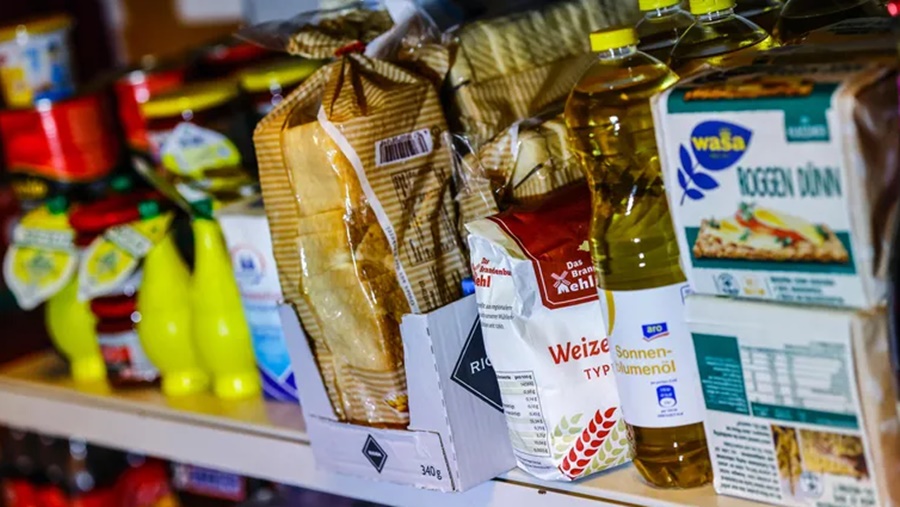Germany inflation rate falls for the second month in a row
Inflation in Germany is weakening. At 7.5 percent, however, it remains at a high level.

The high inflation in Germany weakened in July for the second month in a row. However, goods and services still cost an average of 7.5 percent more than a year earlier, as the Federal Statistical Office announced on Thursday. Economists polled by Reuters had expected 7.4 percent. In June the annual inflation rate was 7.6 percent and in May it was 7.9 percent.
Energy in particular increased significantly in July with an increase of 35.7 percent compared to the same month last year. Food cost 14.8 percent more than a year earlier, the statistics office said on Thursday.
Many Germans feel the consequences in everyday life: Higher inflation rates reduce the purchasing power of consumers because they can afford less for one euro. That’s social explosives. According to studies, high inflation rates hit low-income households disproportionately hard.
Has the climax already been reached?
Based on a company survey, the Ifo Institute assumes that inflation is likely to have peaked. LBBW economist Jens-Oliver Niklasch is not so sure: “I would not go so far that we have reached the high point.”
For example, it is still completely unclear how energy costs will develop for consumers. In connection with the Ukraine war, the prices for energy, raw materials and food have risen sharply in some cases.
Michael Heise, analyst at HQ Trust, also continues to expect high inflation rates. “In September, consumer prices are likely to rise by more than 8 percent year-on-year when government relief measures such as fuel discounts and 9-euro tickets expire,” he says.
Greater relief in energy prices is not in sight, as Russia is fueling uncertainty through reduced gas supplies and thus not only raising the price of gas, but also of other energy sources such as oil or coal, which are in greater demand due to the gas shortage and savings efforts.
Expert: ECB must continue to fight inflation
Ulrich Kater, chief economist at Deka Bank, sees better conditions at least for the coming year, but the supply restrictions for natural gas in winter should prevent inflation from easing. In addition, the planned natural gas surcharge will increase inflation slightly in the coming months.
“But this only brings forward the expected passing on of the high natural gas prices in Germany. This creates better conditions for inflation to calm down in the coming year,” explains Kater.
Fritzi Köhler-Geib from KfW therefore sees the ECB as having a duty to give top priority to combating inflation. “It also signaled this with the first interest rate hike of 50 basis points. It is now important that the ECB continues to deliver here in the long term in order to anchor inflation expectations at 2 percent permanently,” says the economist.
The geopolitical uncertainty and the risk of a complete gas supply stop are also hanging over the coming months like the sword of Damocles, according to Köhler-Geib. This is likely to further delay the relaxation.
EU expects inflation of 7.6 percent
Annual inflation in Turkey rose to 78.62 percent
Inflation in Germany hits 50-year high


